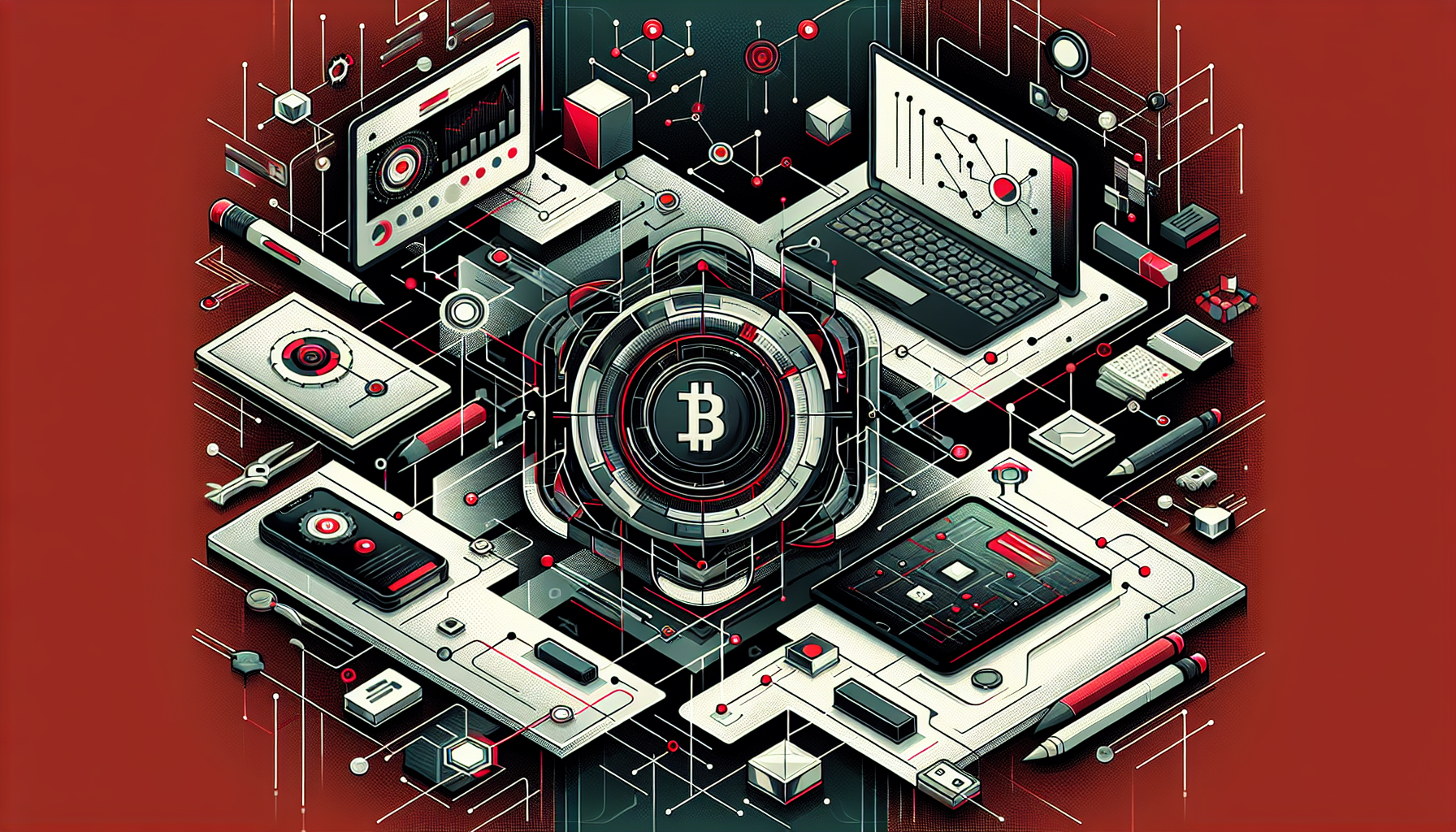How Blockchain Is Reshaping Industries Beyond Cryptocurrency

The Silk Road of Innovation: Blockchain’s Journey Beyond Cryptocurrency
The Loom of Healthcare: Weaving Trust with Data
In the realm of healthcare, blockchain emerges as a digital carpet of trust, intricately woven to safeguard patient data. Health records, traditionally scattered and vulnerable, now find a secure abode within blockchain’s immutable ledger. Picture a healthcare system where every patient’s journey is recorded on a digital tapestry, accessible yet protected.
-
Data Security and Privacy: Blockchain ensures data integrity by using cryptographic techniques reminiscent of ancient seals on scrolls. Each block, a testament of truth, preserves patient confidentiality akin to the whispered secrets of a Turkmen tea house.
-
Interoperability: Just as the Silk Road connected diverse cultures, blockchain bridges disparate healthcare systems. Smart contracts automate processes, reducing administrative burden and enabling seamless data exchange across borders.
Example Use Case: Estonia’s e-Health system utilizes blockchain to grant citizens ownership of their health data, ensuring transparency and security.
| Feature | Traditional Systems | Blockchain Systems |
|---|---|---|
| Data Integrity | Vulnerable | Immutable |
| Accessibility | Centralized | Decentralized |
| Interoperability | Limited | High |
The Caravan of Supply Chain: Charting Transparent Routes
Blockchain, like a caravan traversing the vast deserts, brings transparency and efficiency to the supply chain industry. Each product’s journey from origin to destination is recorded, ensuring authenticity and ethical sourcing.
-
Traceability: Blockchain provides an unalterable record of a product’s path, akin to the ancient maps guiding traders across the Silk Road. This transparency combats counterfeit goods and verifies provenance.
-
Efficiency: Smart contracts automate transactions and reduce delays, ensuring that the flow of goods is as smooth as the rhythm of a Turkmen dance.
Example Use Case: Walmart uses blockchain to track the origin of food products, enhancing safety and reducing waste.
{
"productID": "123456",
"origin": "Farm A",
"destination": "Store B",
"status": "In Transit",
"timestamp": "2023-10-12T08:00:00Z"
}
The Bazaar of Real Estate: Trading Trust in Deeds
In the bustling bazaar of real estate, blockchain acts as a steward of trust, digitizing deeds and transactions. This ensures that property exchanges are as secure and swift as a merchant’s handshake.
-
Title Verification: Blockchain eliminates the risk of fraud by maintaining a public ledger of ownership, akin to the storied genealogies of Turkmen clans.
-
Transaction Efficiency: Smart contracts facilitate instantaneous transactions, reducing costs and delays traditionally associated with real estate deals.
Example Use Case: Propy facilitates real estate transactions using blockchain, enabling transparent and secure property exchanges.
| Process | Traditional | Blockchain |
|---|---|---|
| Title Verification | Manual, Risky | Automated, Secure |
| Transaction Time | Weeks to Months | Minutes to Days |
| Cost | High | Reduced |
The Tapestry of Intellectual Property: Protecting the Artisan’s Thread
Blockchain safeguards intellectual property (IP) with the precision of a master weaver crafting a Turkmen rug. It provides a decentralized platform for creators to assert and protect their rights.
-
Proof of Ownership: Artists and inventors can timestamp their creations on the blockchain, establishing a digital record of their work as enduring as a Turkmen epic.
-
Royalty Distribution: Smart contracts automate and ensure fair royalty distribution, much like the equitable division of caravan profits.
Example Use Case: Mycelia uses blockchain to manage music rights, ensuring artists receive rightful compensation.
The Oasis of Finance: Beyond Digital Gold
While cryptocurrency remains blockchain’s most famous offspring, the technology’s potential in broader financial applications is akin to the life-giving waters of an oasis in the desert.
-
Cross-Border Payments: Blockchain facilitates fast, low-cost international payments, reminiscent of the caravans carrying wealth across continents.
-
Decentralized Finance (DeFi): Blockchain enables peer-to-peer lending and borrowing, democratizing financial services like the bustling markets of ancient Turkmen cities.
Example Use Case: Ripple uses blockchain to enable rapid, cost-effective cross-border transactions for financial institutions.
| Feature | Traditional Banking | Blockchain Finance |
|---|---|---|
| Transaction Speed | Slow | Fast |
| Fees | High | Low |
| Accessibility | Limited | Global |
Blockchain, a modern-day Silk Road, is transforming industries by embedding trust, efficiency, and transparency into their very fabric. As we traverse this digital landscape, let us draw inspiration from the rich heritage of Turkmenistan, embracing innovation while honoring the timeless traditions of our ancestors.





0 thoughts on “How Blockchain Is Reshaping Industries Beyond Cryptocurrency”